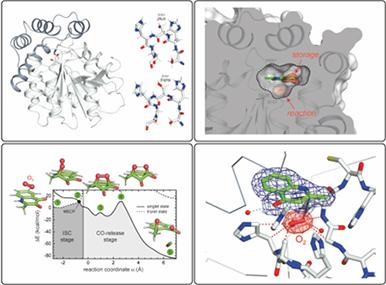Seminario - Biotecnologie e Bioscienze - Venerdì 15 marzo 2024, 16:30, edificio U3-BIOS, aula U3-09 / Webex
Roberto Steiner, Dipartimento di Scienze Biomediche, Università degli Studi di Padova
Abstract

The ‘great oxidation event’ that occurred about 2.4 BYA led to the permanent accumulation of O2 in the atmosphere, putting significant evolutionary pressure on many organisms. Adaptation led to the appearance of novel enzymes able to take advantage of this new molecule and its electron-acceptor capabilities. However, other O2-utilising enzymes evolved from classes whose original functions were unrelated to dioxygen chemistry.
A group of bacterial dioxygenases belong to the very common α/β-hydrolase (ABH) fold superfamily that typically does not catalyse oxygenation reactions. These enzymes degrade their N-heteroaromatic substrates in a cofactor-independent manner relying only on the simple nucleophile-histidine-acid catalytic toolbox that is well known from classical biochemistry textbooks. In this talk I will discuss our integrated approach featuring hyperbaric crystallographic work, molecular simulations and quantum mechanics calculations to explain how evolution has repurposed the ABH-fold architecture and its basic catalytic machinery to accomplish spin-restricted metal-independent oxygenation.
Ospite: Marina Lotti, Marco Orlando
LINK per partecipare al seminario: https://unimib.webex.com/unimib-it/j.php?MTID=m30c3df6f1a72eb7f83bf5ed6f251b5c1
password: day15 (32915 da telefoni e sistemi video)
Il seminario è APERTO a tutti.
tag: #BtBsSeminars